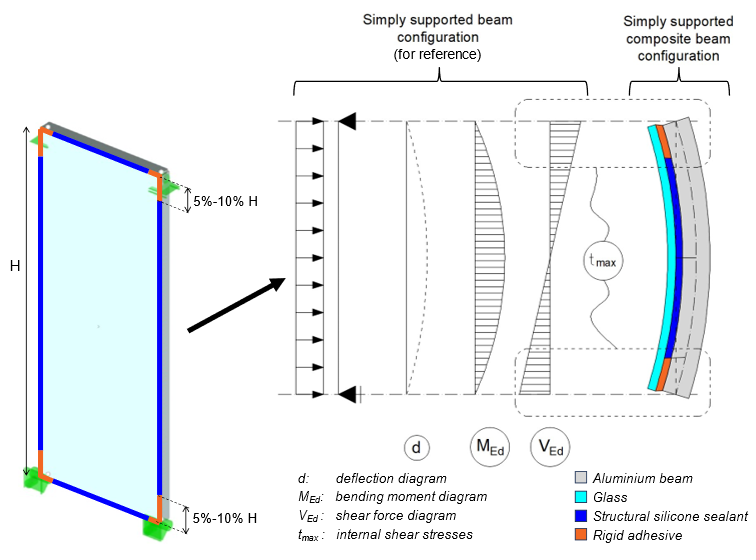The Minimal Wall
A Composite Approach in the Design of Glass-Aluminium Facades to Minimise Embodied Carbon Emissions
DOI:
https://doi.org/10.47982/cgc.9.532Downloads

Abstract
Sustainability, and more specifically embodied carbon emissions, have become one of the most prominent challenges for the facade industry. Discussions around the topic focus on the global warming potential of materials and their recycled content, whilst efficiency and innovation in design as a way to reduce embodied emissions have not yet received the same level of attention. This article proposes evolved structural design and detailing methods for glass-metal facades that minimise the amount of materials needed to meet their serviceability and structural integrity requirements. The discussion focuses on structural sealant glazing and the composite behaviour of glass and frame to resist out of plane loads. The study promotes capitalizing on the inherent contribution of the adhesive connection towards the flexural stiffness of façades and proposes ways of enhancing it for further structural optimization. The impact of the adhesive connection is assessed through an experimental program consisting of extensive four-point bending tests of representative beam samples and corresponding numerical studies. The article provides an interpretation of the interim results and discusses the potential of the proposed solutions to contribute towards a holistic approach to reduce the global warming potential of building envelopes. Finally, directions for future research needed for practical applications of the proposals are presented and discussed.
Published
Issue
Section
Adhesives & Composites
License
Copyright (c) 2024 Stefan Trifonov, Andrea Pilla, Fangliang Chen, Tejav DeGanyar

This work is licensed under a Creative Commons Attribution 4.0 International License.



